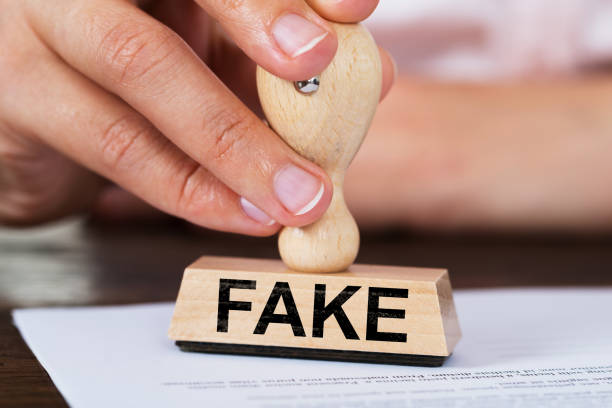Applying for a university admission is a big task that require your GCSE results, but the pressure to achieve good grades can be intense, so much that the thought of faking your GCSE results can cross your mind. Yet you can ask, is t possible to lie about GCSE grade on UCAS?
The impact of submitting fake GCSE results are often underestimated, yet they are multifaceted and grave. Presenting fake GCSE is a questionable act that a lot of students have embraced just to beat the competitive educational landscape in the pursuit of higher education.
In the sphere of academic veracity, presenting forged qualifications is a criminal offence and can lead to serious repercussion. The practice has raised concerns in your recent years and has tainted the UCAS application process.
This piece will answer the question, Can you lie about your GCSE grades on UCAS?. It will also explore the consequences of faking your GCSE result and offer the alternative solutions to faking your GCSE results.
Table of contents
- Legal Implications of False Information
- Consequences and Penalties
- The Verification Process
- UCAS and University Verification Mechanisms
- Does UCAS Check Your Grades?
- Which Exam Results Does UCAS Receive?
- When Does UCAS Send Your Results to Universities?
- What if My Grades are Not Good Enough?
- Tips for Managing Your University Application
- What Happens If you Lie on your UCAS Application?
- Why Should You Not Lie on Your UCAS Application?
- Tips for Writing a Successful UCAS application
- Real-life Consequences of Faking GCSE
- Prevention and Rectification
- Conclusion
- Frequently Asked Questions
- References
- Recommendation
Legal Implications of False Information
When applying through UCAS, all students are obligated to provide accurate and truthful information. Submitting fake GCSE results can result in legal consequences, including prosecution for fraud.
It not only jeopardizes the application process but can also lead to expulsion if we discover the misinformation after admission.
This breach of trust is a serious offense, given the rigorous standards upheld by educational institutions, and can result in a permanent record of academic dishonesty.
Are Schools Public Sector Organisations?
Consequences and Penalties
The aftermath of falsifying academic qualifications is severe. Students found guilty of providing fake GCSE results may face rejection from their chosen universities, and legal ramifications can extend to include fines and, in extreme cases, imprisonment.
Beyond this, the long-lasting impact on one’s academic and professional reputation is immeasurable. It can hinder future opportunities and tarnish personal integrity, thus emphasizing the paramount importance of honesty and accuracy in academic endeavors.
In essence, the legal framework surrounding academic applications is stringent and precise, intended to preserve the sanctity of educational achievements and to ensure a fair and just admission process for all aspirants.
The Verification Process
The process of validating academic qualifications is meticulously designed to detect any discrepancies, ensuring that fake GCSE results are identified and dealt with appropriately.
UCAS and University Verification Mechanisms
UCAS collaborates closely with universities and examination boards to confirm the authenticity of every applicant’s academic records. Universities often have stringent verification procedures in place to cross-check the provided grades and qualifications with the issuing bodies.
This robust system ensures that any misrepresented or falsified information is quickly identified, upholding the integrity of the admission process.
Examination Boards’ Role
Examination boards play a pivotal role in this verification mechanism, as they are the authoritative bodies responsible for issuing GCSE results. They provide the necessary information to validate the grades the applicants submit, maintaining the accuracy and reliability of academic records. Any discrepancies found during this stage can result in immediate disqualification of the application, enforcing the zero-tolerance policy against academic dishonesty.
In conclusion, the multifaceted verification process is crucial in maintaining the sanctity and credibility of the education system, ensuring that every student gains admission based on their true merits and accomplishments.
Read how you Can Get A GCSE Remark
Does UCAS Check Your Grades?
UCAS (Universities and Colleges Admissions Service) is a centralized application system for undergraduate students in the UK. It is responsible for processing applications from students who wish to apply to multiple universities or colleges. UCAS does not check your grades directly.
However, it receives your exam results from your school or college, and it then forwards these results to the universities or colleges you have applied to.
Your grades are an important factor in your university application, so it is important to make sure that they are accurate and up-to-date. You should check with your school or college to make sure that they have submitted your exam results to UCAS on time.
Which Exam Results Does UCAS Receive?
UCAS receives exam results for a wide range of qualifications, including:
- A levels
- AS levels
- BTECs
- Scottish Highers
- International Baccalaureate
- Irish Leaving Certificate
- Access to Higher Education Diplomas
If you are applying to a university or college outside of the UK, you may need to send your exam results directly to the institution.
When Does UCAS Send Your Results to Universities?
UCAS sends your exam results to universities and colleges on A level results day. This is usually in mid-August. If you are taking other qualifications, such as a BTEC or International Baccalaureate, your results may be sent to universities and colleges later in the year.
What if My Grades are Not Good Enough?
If your grades are not good enough to meet the conditions of your university offers, you may still have options. You may be able to enter Clearing, which is a system that allows universities and colleges to fill places that have not been accepted by students. You may also be able to defer your entry for a year or apply to a different university or college.
It is important to contact the universities or colleges that you have applied to if you are concerned about your grades. They will be able to advise you on your options.
Tips for Managing Your University Application
Here are some tips for managing your university application:
- Make sure that you submit your application and exam results on time.
- Check your UCAS Track account regularly to see the status of your application.
- Keep in touch with the universities or colleges that you have applied to.
- If you are concerned about your grades, contact the universities or colleges that you have applied to as soon as possible.
UCAS does not check your grades directly, but it receives your exam results from your school or college and then forwards them to the universities or colleges you have applied to. Your grades are an important factor in your university application, so it is important to make sure that they are accurate and up-to-date.
What Happens If you Lie on your UCAS Application?
Lying on your UCAS application is a serious offense. If you are caught lying, your application could be canceled, and you could be banned from applying to university through UCAS for several years.
There are several ways that universities can check the information on your UCAS application. For example, they may contact your school or college to verify your grades and predicted grades. They may also contact your references to check what they have said about you.
If a university finds that you have lied on your UCAS application, they are likely to take action. This could include canceling your application, revoking any offers that you have received, and reporting you to UCAS.
UCAS takes lying on applications very seriously. If you are caught lying, you could be banned from applying to university through UCAS for several years. This could have a significant impact on your future education and career plans.
How Do You Rent a Graduation Gown? Best Places to Hire a Graduation Gown
Why Should You Not Lie on Your UCAS Application?
There are a number of reasons why you should not lie on your UCAS application:
- It is dishonest and unethical.
- It is a serious offense that could have serious consequences.
- It is unfair to other applicants who are being honest.
- It is unlikely to help you get into university.
If you are struggling to meet the entry requirements for your chosen universities, there are a number of things that you can do to improve your chances of success. You could talk to your school or college tutor about your options, or you could seek professional advice from a university admissions consultant.
Tips for Writing a Successful UCAS application
Here are some tips for writing a successful UCAS application:
- Be honest and truthful in all of your answers.
- Highlight your strengths and achievements.
- Explain why you are interested in the courses and universities that you are applying to.
- Proofread your application carefully before submitting it.
If you are unsure about anything, it is always best to ask for advice from someone who knows the UCAS application process well.
Real-life Consequences of Faking GCSE
Lying has real-world effects. Let’s look at what happens when students use fake GCSE results.
University Rejection
One big risk is not getting into university. Schools value trust. When they find out about fake grades, they often reject the student. This can ruin the chances of studying further.
Legal Actions
It’s not just about schools. Using fake results can lead to legal trouble. This can mean fines or even time in jail. No dream school is worth this risk.
Damaged Reputation
People remember dishonesty. If caught, the student’s name can be tainted. This can affect future jobs or relationships with others.
Lost Opportunities
With a bad reputation, many doors close. Job offers might be pulled back. Other schools might not accept the student. One small lie can change the course of one’s life.
In the end, the risks of lying far outweigh the benefits. It’s always best to be honest and face challenges head-on. Success built on truth lasts longer and feels better.
Prevention and Rectification
Stopping fake grades is key. Both UCAS and schools are acting. Plus, students can correct mistakes.
1. UCAS Measures
UCAS checks grades. They work with schools to make sure info is right. Their system catches fake results fast. This stops unfair admissions.
2. Schools Stepping Up
Schools also play a part. They double-check grades. If something looks off, they investigate. Many schools now have strong tools to spot fakes.
3. Correcting Mistakes
Did you make an error? It’s okay to fix it. Students can contact UCAS or the school. Honesty is always the best policy. Correcting mistakes early can avoid bigger problems later.
In short, fake results are bad news. But there are ways to keep things fair and fix errors. Being honest makes the process smooth for everyone.
How Do You Rent a Graduation Gown? Best Places to Hire a Graduation Gown
Conclusion
The temptation to inflate your GCSE grades might seem appealing, it is a criminal offence; the risks far outweigh the benefits. UCAS qualifications are been verified, and getting caught can lead to disqualification from your chosen university or even future applications.
Beyond these tangible outcomes, it has intangible costs – erosion of self worth, burden of deceit, and the missed opportunities for authentic growth- that truly underscores the importance of honesty.
Even if your GCSE results aren’t exactly what you hoped for, there is always a better option than faking your results.
Frequently Asked Questions
UCAS works closely with examination boards and universities to validate the accuracy of submitted grades.
Yes, it’s essential to contact UCAS or the respective university promptly to rectify errors.
Consequences range from application rejection, and potential legal action, to damaged reputation.
Schools and UCAS have measures in place. Students should always prioritize honesty and understand the value of genuine effort.
Double-check all entries, consult with academic counselors, and rely on official transcripts when entering grades.
References
- Can you fake GCSE results on a UCAS application? – www.thinkstudent.co.uk
- Lying about GCSE results on UCAS – www.thestudentroom.co.uk






